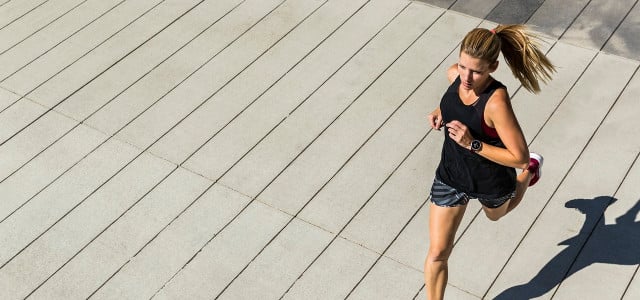
In addition to its taste, coffee is particularly popular because of its stimulating effect. So could a coffee before jogging also improve your performance during running training?
Coffee can be quite healthy – depending on how much and in what form you consume it. But how does caffeine, be it in coffee or caffeinated drinks, affect our athletic performance? Can a coffee before jogging increase performance and at what point can it become harmful to your health?
Coffee before Joffen: A booster for endurance?

(Photo: CC0 / Pixabay / Pexels)
Caffeine has been repeatedly used in sports to improve performance. Until 2004, caffeine was on the World Anti-Doping Agency’s banned list. However, enforcing a limit was problematic because caffeine is broken down at different rates and it was difficult to prove whether someone had knowingly doped or simply drank a lot of coffee. Researchers assume that around 75 percent of athletes consume caffeine during competitions.
A meta-analysis published in Sports Medicine from 2018 and a review from 2021 showed that caffeine, whether contained in coffee or from an energy drink, can improve endurance in moderate doses (three to six milligrams per kilogram of body weight).
Scientists suspect that the effect is greatest in endurance sports, but caffeine can also indirectly improve performance when jogging: Several studies have shown that caffeine increases both muscle strength and muscle performance.
According to an analysis, there are far more studies on how caffeine improves performance in men than in women. Studies conducted between 2004 and 2018 showed that drinking two cups of coffee before jogging made men run faster. The increased muscle strength and muscle performance were also examined in male test subjects.
How and how much coffee to drink before exercise?

(Photo: CC0 / Pixabay / Pexels)
Basically, sporty coffee drinkers can follow a rule of thumb from the renowned British Journal of Sports Medicine: two cups of coffee, drunk up to 60 minutes before the start of training.
However, issuing blanket guidelines is only possible to a limited extent. Because how the body reacts to coffee is individual and is influenced, among other things, by genetic variations.
The question of dosage cannot be answered clearly either, because not every type of coffee contains the same amount of caffeine. The caffeine content of a cup of coffee from a special roaster also differs from coffee from a fully automatic machine.
The European Food Safety Authority currently recommends a daily caffeine dose of up to 400 milligrams per day (about 5.7 milligrams per kilogram of body weight). A caffeine overdose is difficult to achieve with coffee, but should not be underestimated: too much caffeine can make you shaky and nervous and can also affect the quality of your sleep. The concerns that coffee would dehydrate, however, turned out to be a myth.
Science does not explicitly address whether black filter coffee, espresso or, for example, a latte macchiato before jogging works particularly well. As different as the caffeine content of these types of coffee is, the way caffeine is metabolized is individual. However, if you want to lose a few kilos or lead a healthy lifestyle, you are well advised to have a coffee without sugar and a little milk.
For the sake of the environment and the coffee farmers, it’s best to look for organic and fair trade seals when shopping. These guarantee more humane and environmentally friendly cultivation practices and fair pay for producers. If you like drinking coffee with milk, you can also replace the cow’s milk with plant milk. For example, many people like soy, almond and oat milk in coffee.
Read more on Techzle\.com:
- Shadow Coffee: Why It’s Better Than Regular Coffee
- Roasting coffee: This is how it works at home too
- Green coffee: preparation, taste and effects of the drink
** marked with ** or orange underlined Links to sources of supply are partly partner links: If you buy here, you are actively supporting Techzle\.com, because we then receive a small part of the sales proceeds. More info.